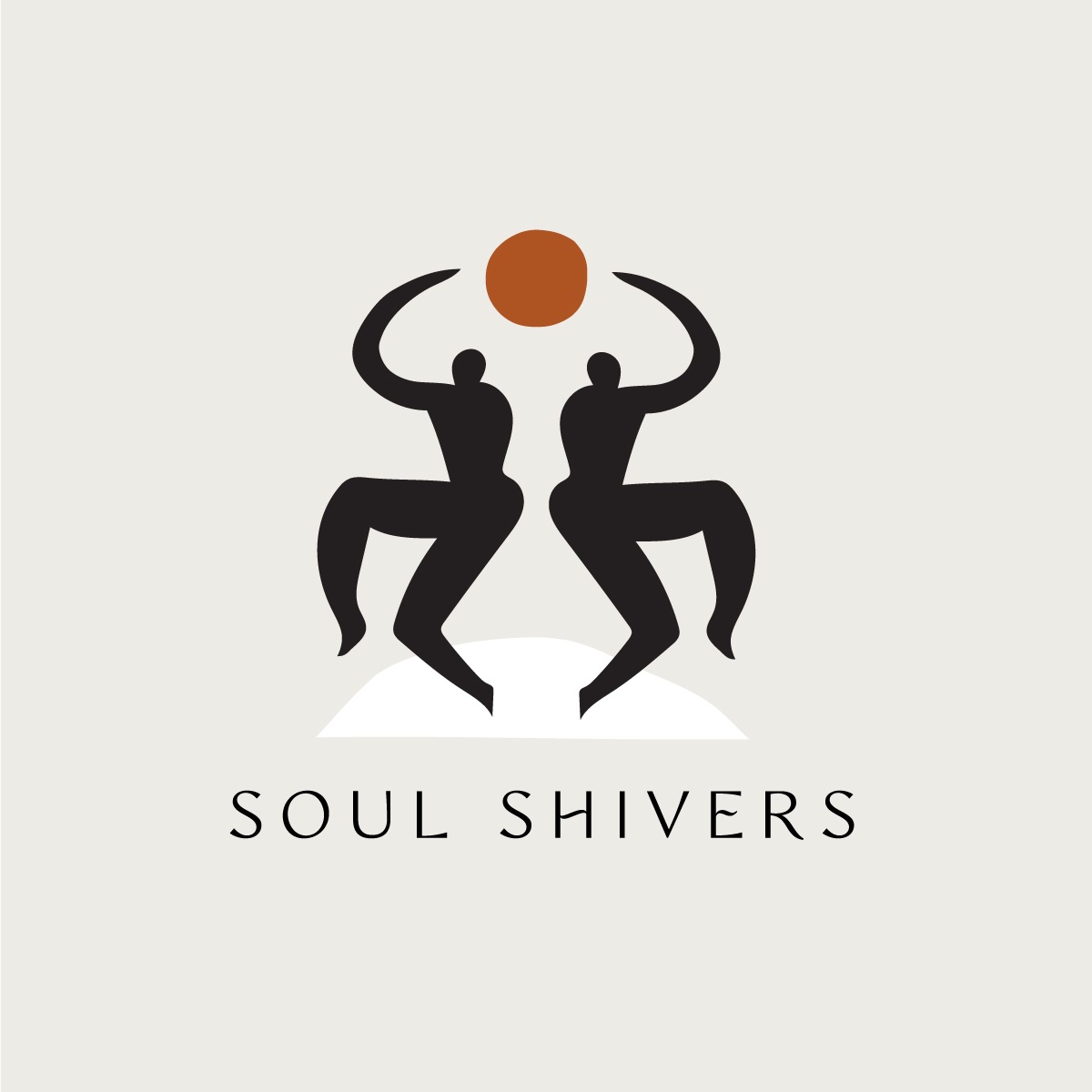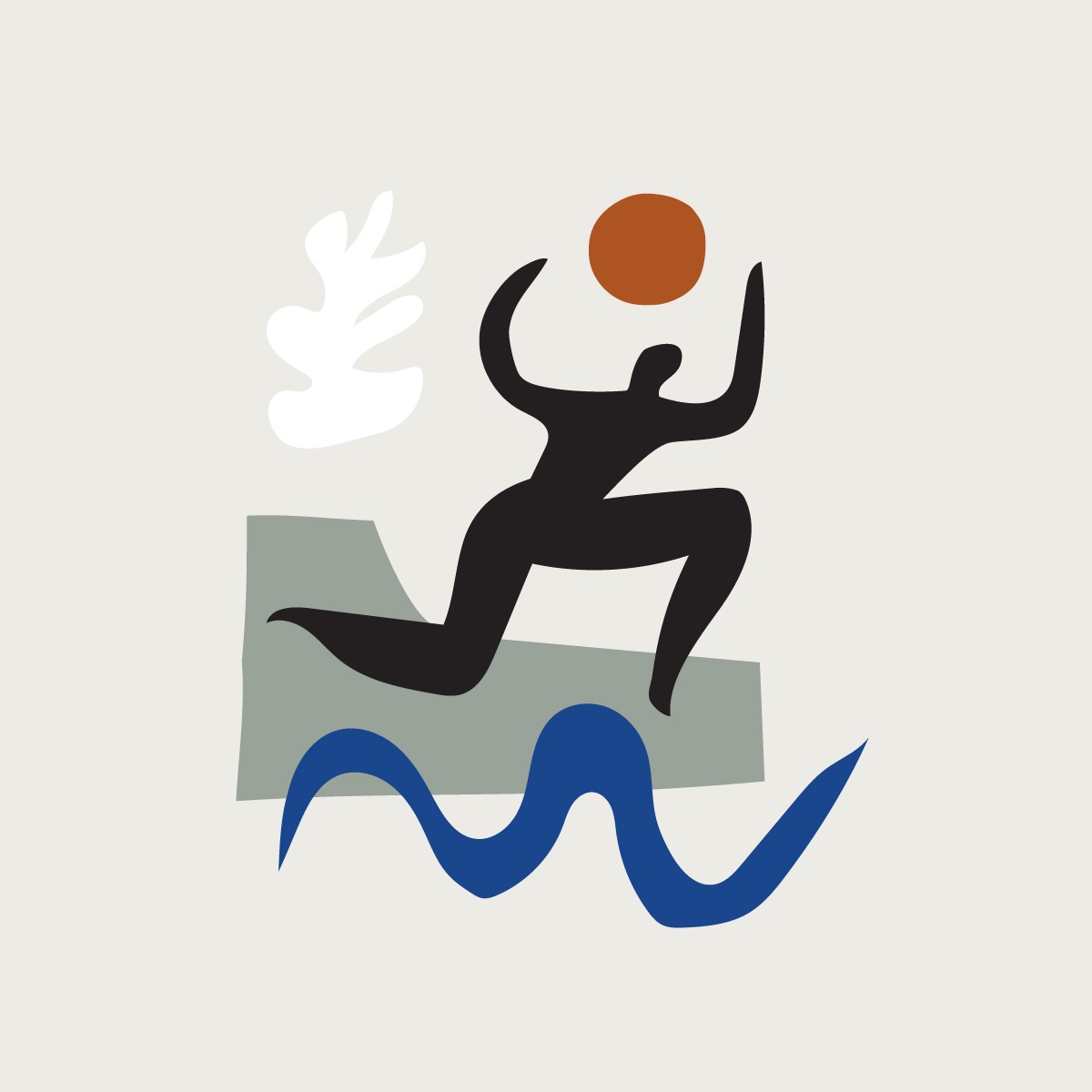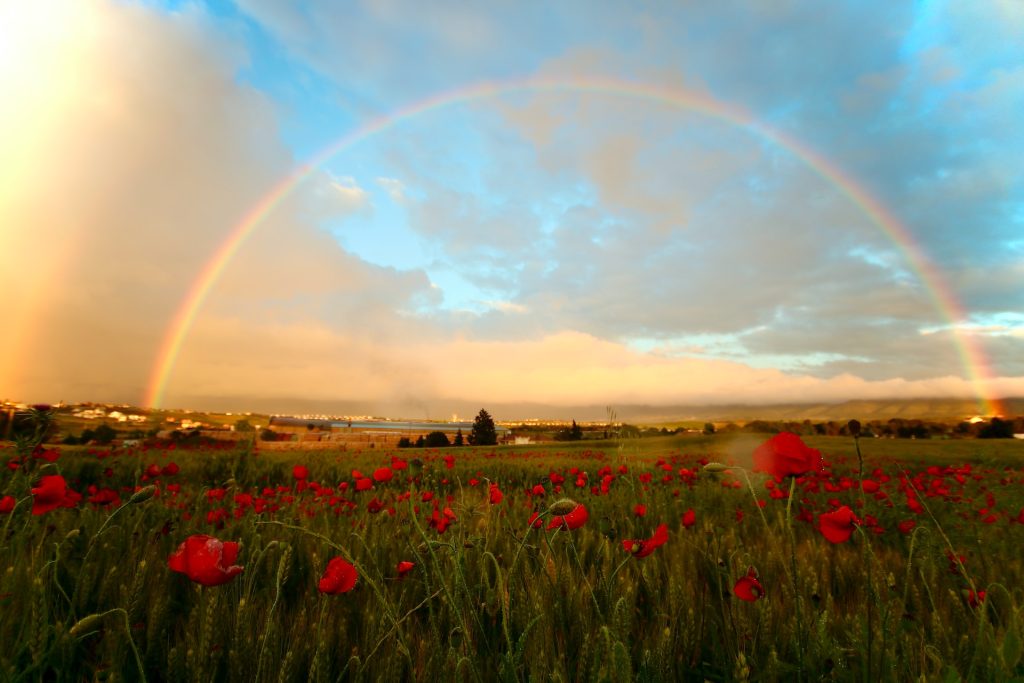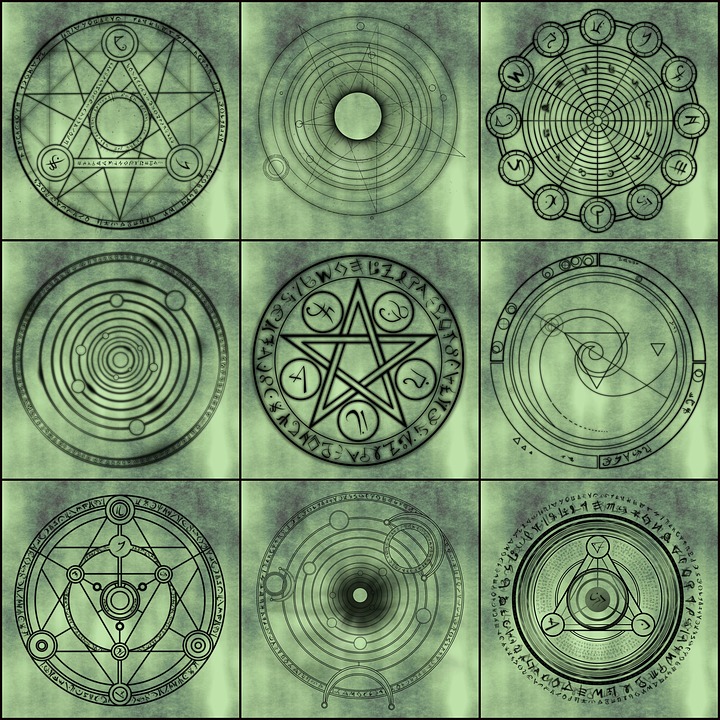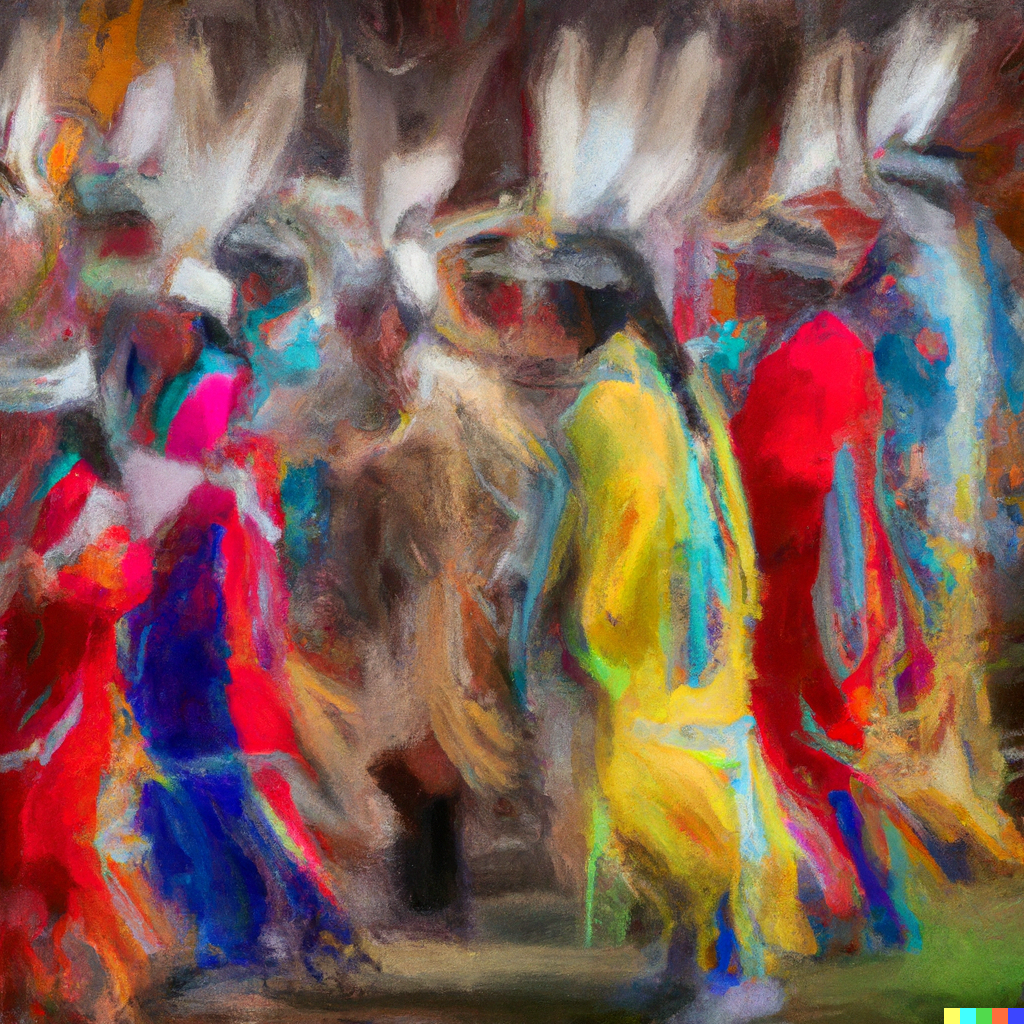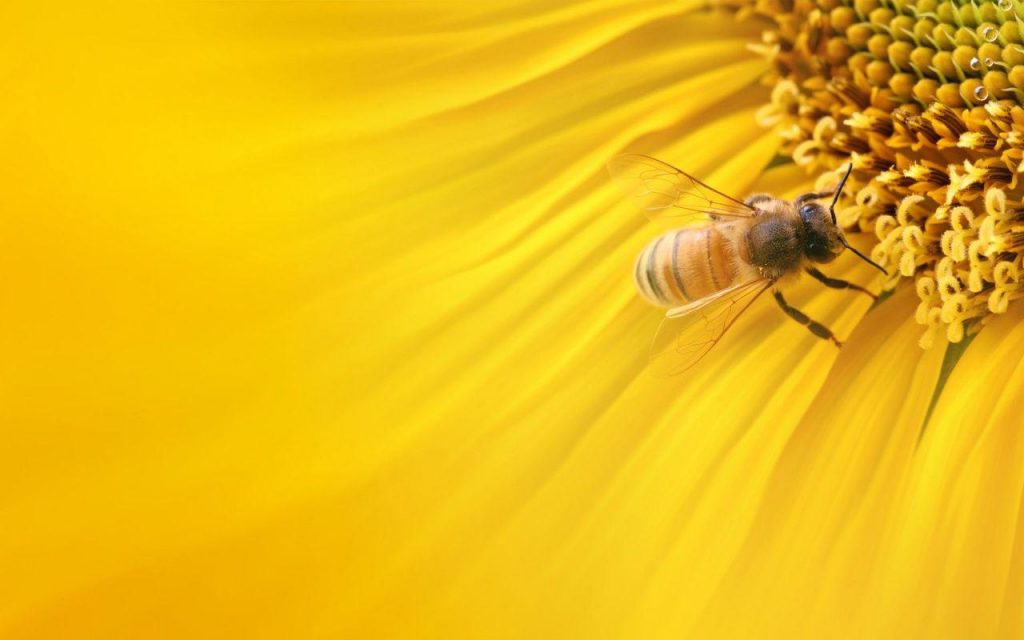Regeneration and Ancestral Memory
Soul Shivers launched at the Stoa in February and March of 2021. We held a series of four dialogues framed around earth regeneration, breaking the conversations down into four critical themes which were ancestry, trauma, connection to place, and peace. You can view the series here.
Soul Shivers captures seldom heard stories from women around the world working on earth regeneration in different ways. Our dialogues are intimate, translocally interconnected, and impactful. In a special collaboration with Kosmos, we are offering edited transcripts of these conversations.
Freya Yost:
Let’s briefly introduce ourselves. My name is Freya. I am an artist and an activist living in Italy. I am joined by my colleague Luea, who is the creative steward of collective transitions and dedicated to widening the ways we see sense and respond across perceived divides.
Luea Ritter:
Thank you, Freya. I just also want to acknowledge our ancestors as that is the theme that guides us through this day. And so I would love to spark our introductions with the question, “Who are your ancestors?” – and how do they influence your work in the world these days?
Jane Ruka:
I’m happy to introduce myself to the forum. My name is Jane Ruka. I am a first nation person of Aotearoa better known as New Zealand. And we have a very long relationship with Papatuanuku. And that relationship connects us to everything within our known area. Whether it be alive, or sentient being, or part of our landscape, we are all attached to each other.
Alexandra Gavilano:
I’m Alexandra. I’m half Swiss half Peruvian. And I would also like to say that I’m from this home planet that we all call Earth. And I relate to ancestry since I first moved from Switzerland to Peru when I was seven years old, and started to realize how different these worlds are that collided. And sometimes it’s challenging because they’re still colliding. And sometimes they’re quite similar. And I suddenly realize this incredible strength and that I’m not alone, but that I have all these ancestors carrying me and guiding me through my life. Thank you, I would love to hear from Amber.
Amber Tamm:
That question, I think, has spun me out in my life so many times. Because as a black American woman who is African but also is not African; is American, who is indigenous to America, but too black to fit into these indigenous pockets, who is essentially Irish and Italian, but too black and indigenous to fit into that pocket.
So that this question has made me feel in the past a lot more pain and anguish than joy.
“Seven years ago, when my mother was murdered by my father, I thought of ancestry in a new way. I thought how powerful it is to be so young and have an ancestor that is a mom. So for me, when it came down to my mom, the place that was my first place on this planet was then buried into the planet. Well, if I’m going to bury my mom into this earth, and she is going to decompose in it, then my ancestry is this earth.”
And when looking back to slavery in the Americas, all across, obviously, all of our ancestry is this earth – as that’s where the DNA of so many of our family members are.
And I had no pictures. I don’t know beyond my great grandmother. Having no pictures of previous ancestors, I have to lean on those who feel like ancestors. So I welcome all the greats as my ancestors. I welcome George Washington Carver. I welcome Toni Morrison, Maya Angelou and Harriet Tubman as they join the truth. I think of ancestry as the bones that you walk on, as the people you directly came from, but also as the people who inspire you.
Naomi Mwangi:
Thank you all. That was so beautifully shared. My name is Naomi and I am from Kenya. And in Kenya, we have 42 tribes. And all these 42 tribes has a different story of how their tribes came to being.
My tribe is called the Kikuyu tribe, which is one of the three largest tribes in Kenya. My ancestry is believed to have originated from a tree. A huge tree, we call it Mugumo tree. In English it is the Sycamore tree. So the tree did burst open, and out came two people who were Gikuyu and Mumbi. And so they were beautiful human beings as my ancestry story is told, and they collaborated to give birth to nine daughters. That is how my great grandmother and my grandmother told me stories of how we came to originate.
I know all of us here are from different beliefs, and we believe so many different things. But it all connects back to the earth. And I believe that I was born from the earth and my ancestors are in my footsteps as I walk on the earth that I am living on right now. Every person who walked on this ground, they had a purpose. And as we are walking on this ground, what are the footsteps we are leaving so that the other generations can come and not get lost into trying to understand who their ancestors are?
Luea Ritter:
What’s the legacy that you have received from your ancestors that informs and influences your work these days?
Alexandra Gavilano:
I feel like right now we are confronted with having to do reparation work in regard of the climate crisis, the ecological crisis that has happened in the last 100 years. And what I feel so strongly is that, right now, we’re really kind of confronted with all these different layers, that somehow they feel like they don’t fit anymore, and they don’t fit our Earth.
The more my awareness grows, the more I have a feeling of sadness or also feelings of being overwhelmed that humanity has been so ignorant. How is it possible that for so long we kept ignoring and kept on destroying ourselves among each other and all these other beings?
Amber Tamm:
Alexander mentioned layers, and I think that’s a really great question pertaining to legacy. Because generations of people can be stacked like layers ,or I think about the layers of the earth. It’s really important because different layers represent different things. And I think one of the parts that we need to dig deeper into is what are we going to unlearn? And I think, for me, that’s what I feel responsible for within my own personal lineage. Like there are an abundance of things that need to be unlearned.
Jane Ruka:
I am a lot older than all of you. And I’ve had the experience of coming through the destruction. And I’m going to say here, that much of the destruction was caused by patriarchy who in their learnings and their cultural systems left behind the connections to our Mother Earth, Papatuanuku.
“My culture has an ancestry that’s called Whakapapa. And it takes us right back to our God Systems. Our gods, we are descendants of them.”
In New Zealand, we are descendants of multiple Pacifica cultures. We also have connections to Peruvian cultures, South American cultures, to Taiwan and to the Himalayas, multiple centuries of those that come through in our DNA.
…Our indigenous folk do not have to ‘unlearn’ anything. We have to drop colonization off us because we are descendants of people who still care and still have our histories of care and stewardship for everywhere we live.
We do not have to unbind ourselves. We just have to emphasize our cultural belief systems that go back multiple centuries. We own reparation. We do not have anything to unlearn. And for the cultures that do have to relearn, we and they can go together to improve where we sit in this age. I would like to encourage everybody, you are all indigenous to wherever your blood comes from. Amber, I’m particularly not talking to you because you have been devastated as an African American person. You have not had the freedom, which we have had in being colonized in New Zealand.
If you belong to a god, that god is stronger than any colonizing force that comes at you. So we don’t have to worry about decolonization. We just have to throw it off our shoulders. It doesn’t belong to us
You do not need to be carrying, “I’m a slave.” You do not. And I know very well that you will not accept that. So go back and say, “I’m the descendant of a god.” And no one can challenge that. Whatever nationality they are, they are your gods. And your gods are very powerful if you give them the right to own you.
Naomi Mwangi:
Thank you so much, Mama. Honestly, I’ll repeat this again. Every time when Jane speaks, there’s just so much that lights up in me. And I feel like you should just come over here in Kenya and bring this to the young generations that are growing up here in Kenya.
There’s so much that we are carrying on our shoulders. And we don’t want to let them down because of the cultures that we are coming from – the things that we know from the systems that have taught us to know – yet we even don’t know them. We don’t even see them. We can’t even grab them, but we just keep them.
Because the system has programmed us in a way that we can’t even think for ourselves. And we are waiting to be told by someone. And I’ll just give a small instance. I love sharing this story because it’s something that is truly alive in me and I’m learning every time from it. I continue relearning as we are talking about unlearning and relearning.
My situation of being a survivor of the post election violence that happened in Kenya in 2007 to 2008, that was a conflict of tribal interests. And the conflict was all about the governmental seats, which even doesn’t affect the citizens. The citizens should share their voices and their voices should be heard, instead of government oppositions and positions thinking they must make decision for the citizens.
The young generations were going into people’s homes, burning their homes, killing people with machetes, and all these other terrible things that happened. And I’m lucky that my family survived all that. And none of my family died. But the main thing that really pains me so much is that we are losing the sense of where we come from. So when I hear you talk, Jane, it really gives me a lot of energy and strength to know that I should continue listening to my deeper ancestral voice, because that is what I’ve been shutting down.
And I feel like there is a lump in my throat. But I know that this is what we are here for, to hear each other’s voice and also know the worth of being in ancestral steps and knowing that these steps are the steps that we need to hold. So I’m just so grateful. Thank you Jane for that.
Alexandra Gavilano:
Yes, thank you also, and also Naomi for sharing again. It’s a journey that I’ve been going on. My question that I wonder about is, “why do we move a bit forward, and then again, back.” For me, it’s actually like the ancestors, I’m feeling them very clearly. And as you said, I come from two bloods, but I’ve really felt them most of my life much more from the Latin American side. And I remember when I met Luea, and we once had the discussion on traumas and collective traumas, I went through a journey with feeling all these different past experiences. And I just remembered that when you said to Amber, “throw it away”.
Because having the ones that colonized and the ones that were oppressed within me, I am in strength and I find it quite easy to connect. But there are periods, like I just had this weekend, where I question myself, like, what does it need for this kind of collective engagement, collective awakening? And I feel like trust and courage… to trust is one key to it. Like I can say, in school or in my education, or my surroundings, I was not engaged in trust. Like it was just to produce. This is the context we’re in. And a lot of times when I’m in discussions with people, I just realized that we often lack the courage to do something entirely different.
And I’m just wondering, and I’m just putting it out there for everyone. Like, what kind of places can we create to enable people to feel the courage and to also feel the trust to actually dive into it and just imagine what has not existed yet? Because that’s what I believe is the new thing that brings us into the here and now is really…
Jane Ruka:
When I see the informed generations. Your generation and below, we have a really important time in history. What you really need to do is regenerate yourselves into the belief you are who you are. And then you can communicate in your specific area. But in doing your area, also keep in touch with everybody else – using technology.
Just like we’re conversing now, and we’re spreading information out there, imagine all the teens coming through and they even… I have a grandchild who’s seven in age. She’s far cleverer than I am on technology. Our hope is right there.
She has her ancestral rites of information handed down generationally. So that by the time my seven year old grandchild approaches her time of need, she’s got three generations known to her. She doesn’t have to have a professor or a scientist teaching it.
So if you have a child you have to make very sure that child is at your elbow. Because if every person in the whole world has the next generation at its elbow, it will not require anybody else to come and teach it, how to regenerate the environment.
All we all have to remember is, we do not believe in patriarchy. I have a grandson who is a beautiful man. I have relatives who are beautiful men. So if we do not allow the patriarchy to overcome us again, we walk equally with them. Women must step up to the plate and be very affirmed
Freya Yost:
So many things have stood out to me as I listened to all of you. I particularly loved the invitation to put your knowledge in the relationships that you have. As an activist, and someone who spends a lot of time thinking about the turmoil that the world is in, even in my own neighborhood or family, I sometimes get bogged down by the bigness of the problems, how they’re everywhere and all encompassing. It seems as If there’s no hope. And when I shift from that feeling to, “put your knowledge in your relationships” all of a sudden, everything that I engage becomes more influential. I have two children and thinking about how I can do that, embody that, and practice that every single day is incredibly helpful. It’s like the best insurance plan ever, right?
Thank god I don’t need to store my knowledge just on Gmail. I actually have a web of relationships that exist around me at all times that I can choose to invest in.
We live in paradoxical times, right? And navigating that is central to activism now, in these times, right? So with that, I would love to hear questions from all of you.
Amber Tamm, USA
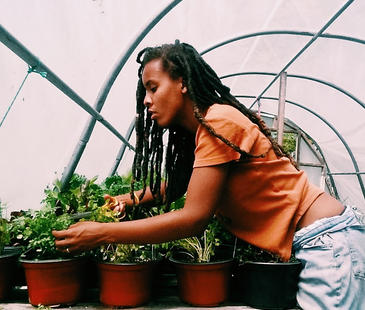
Every farmer has an origin story of how their journey to the land began. For some it builds over time and others it happens in a day. For Amber, it was a single moment when her father murdered her mother. At the age of 18, she lost both parents and along with them she lost her housing, income, food and healing. Little did she know farming would provide her with all of these things. For months Amber mourned, devastated in silence. And then there came a day when she felt called to get outside, into nature. “As I laid my mother’s body into the earth, the earth literally became my mother.”
Jane Ruka, New Zealand
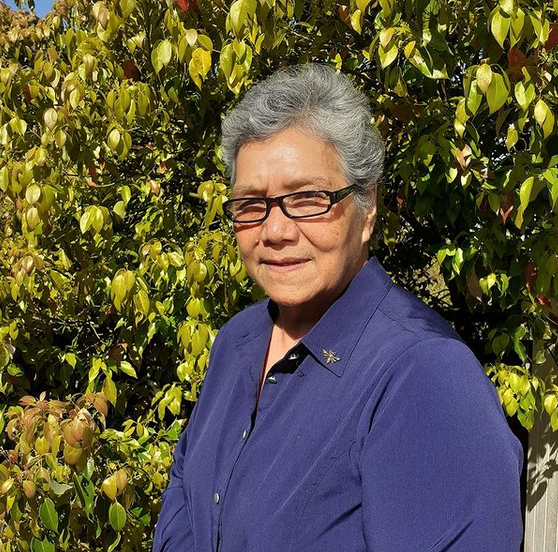
Jane Mihingarangi Ruka is the Chairwoman of the Waitaha Executive Grandmothers Council. The Grandmothers represent the Nation of Waitaha in Aotearoa New Zealand. Jane is the Kaiwhakahaere of the Waitaha Claim Wai 1940 lodged with the Waitangi Tribunal in New Zealand. Jane and the Grandmothers practice care for the environment, peace, and promote the wisdom of women.
Naomi Mwangi, Kenya
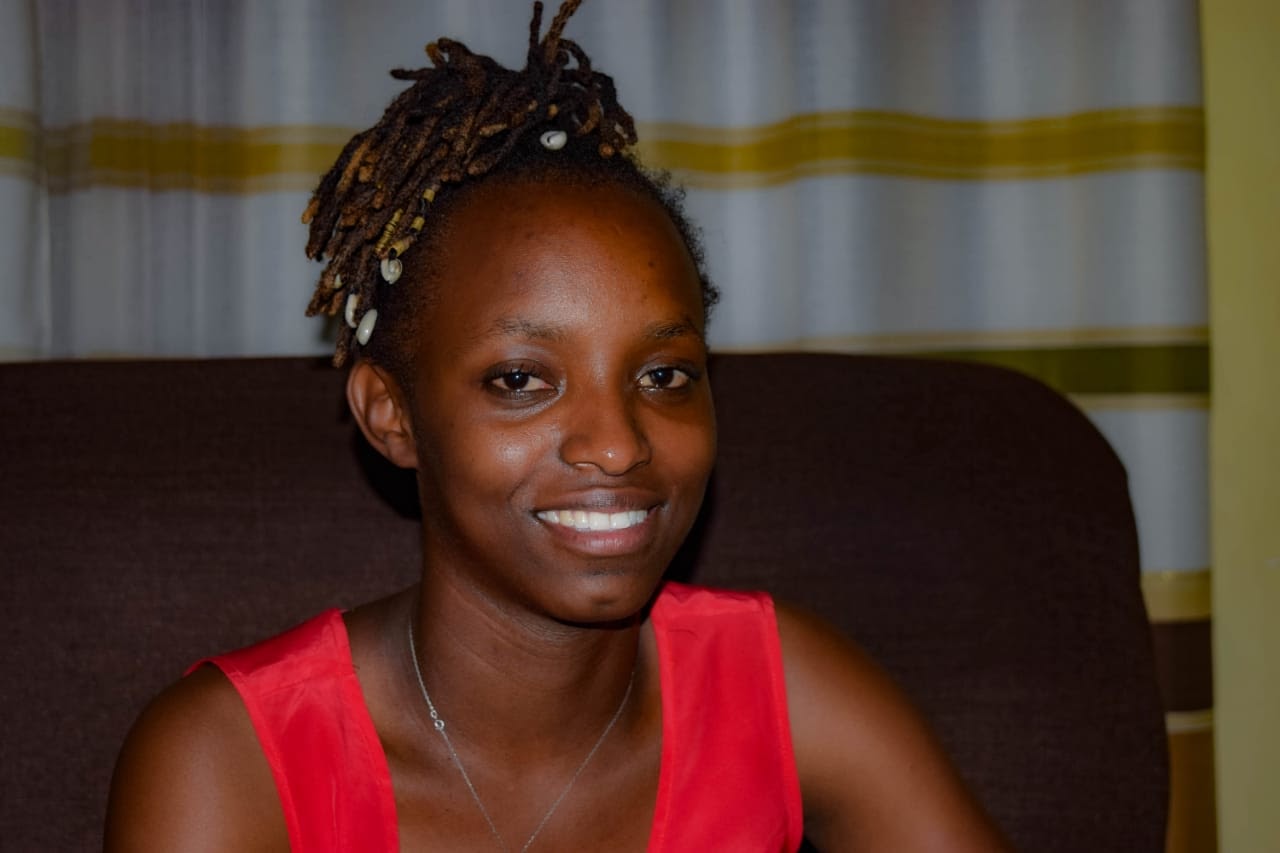
Naomi was born in Kenya, Kisumu at a village called Nyalenda. She and her family later moved to Eldoret during 2007/2008 when the post-election violence took place in her country. They were affected in Eldoret where they thought if they ran away from Kisumu, Eldoret would be safe. But it was even worse when their house got burnt down and they had to move from one place to another in search of food and shelter since they were left with nothing or even a place to call home.
Naomi and her family were rescued by the United Nation High Commission for Refugees and World Food Program. Naomi is the Founder of African Dream Movement. She is also involved in facilitating leadership programs like the New Generation Leaders Program in her country hosted by the International Peace Initiatives in a town called Meru.
Alexandra Gavilano, Switzerland
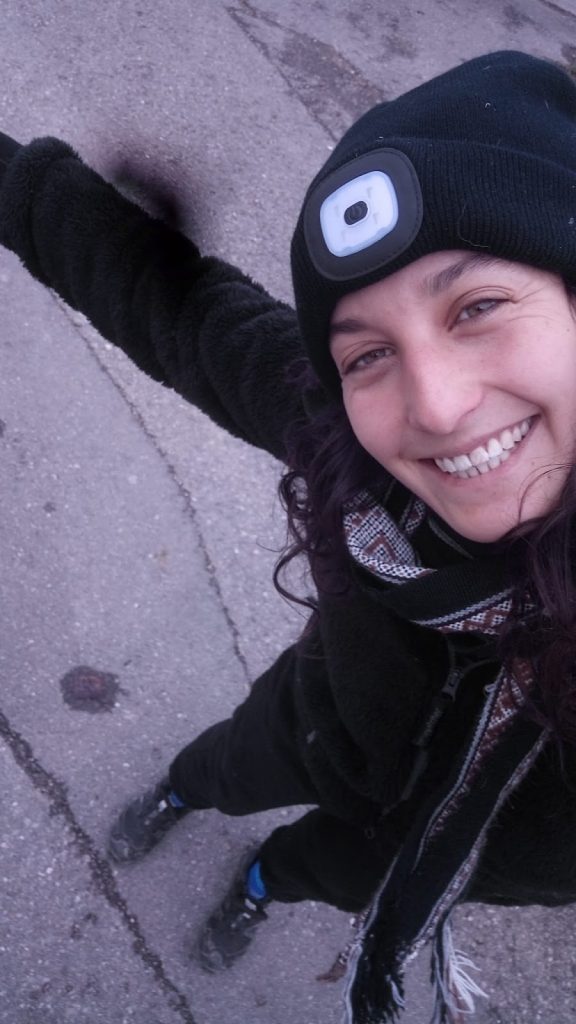 Alexandra Gavilano is a Swiss-Peruvian environmental scientist and activist for social transformation and planet protection. Her passion is to reflect, observe and learn from inner/individual and inner/collective processes and manifestations of those in the outside world to envision a way towards the new era of humanity and all beings on our planet earth.
Alexandra Gavilano is a Swiss-Peruvian environmental scientist and activist for social transformation and planet protection. Her passion is to reflect, observe and learn from inner/individual and inner/collective processes and manifestations of those in the outside world to envision a way towards the new era of humanity and all beings on our planet earth.
Luea Ritter, Switzerland/Greece
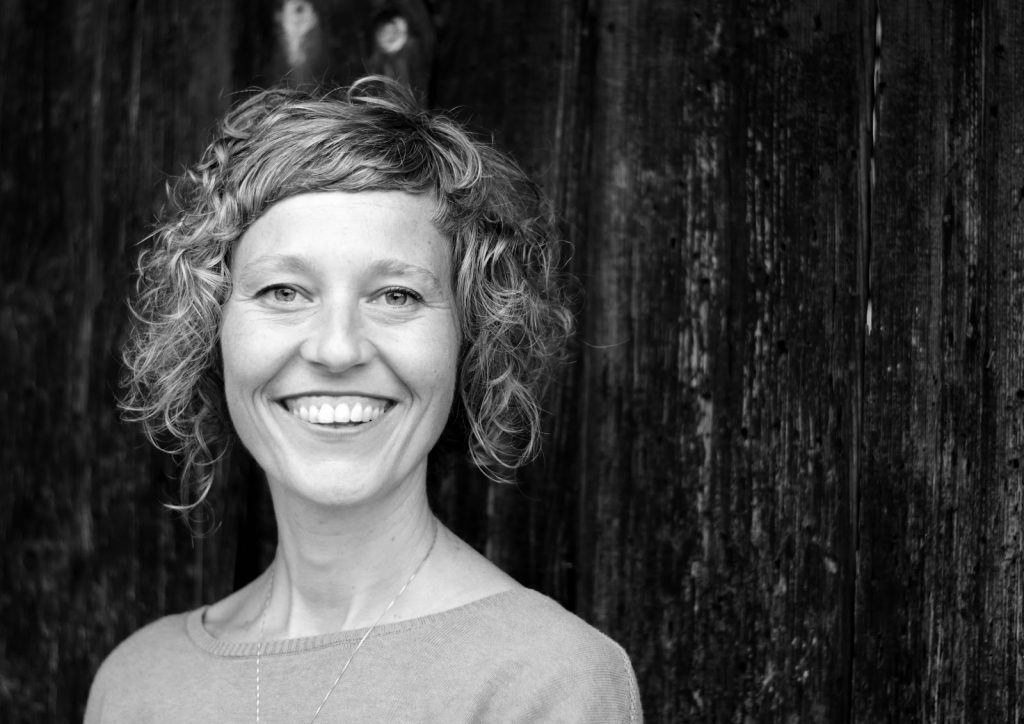 Luea is a process steward, action researcher, coach and systemic constellation facilitator. Her work internationally and across diverse sectors, weaves transformative change processes, trauma and healing work, leadership, and earth-based wisdom traditions.
Luea is a process steward, action researcher, coach and systemic constellation facilitator. Her work internationally and across diverse sectors, weaves transformative change processes, trauma and healing work, leadership, and earth-based wisdom traditions.
Through a diverse medley of fields she has developed a high sensitivity for context-based cultural and social dynamics. She is co-founder and creative steward of Collective Transitions, an action-learning and research organization dedicated to building shared capacity for fostering and maintaining transformational shifts, as well as co-founder and steering team member of the Nile Journeys, a platform for transboundary dialogue and regenerative collaboration in the Nile Basin.
She is part of collaboration helvetica, an initiative that catalyses systemic change towards the societal transformation of Switzerland by cultivating a cross-sectoral innovation ecosystem, running different capacity-building programs and open knowledge sharing. In her cutting-edge research-to-innovation PhD Process for Holistic Development with the Geneva-based TRANS4M Center for Integral Development, she focuses on social fields and the building and maintaining of coherence.
Freya Yost, Italy
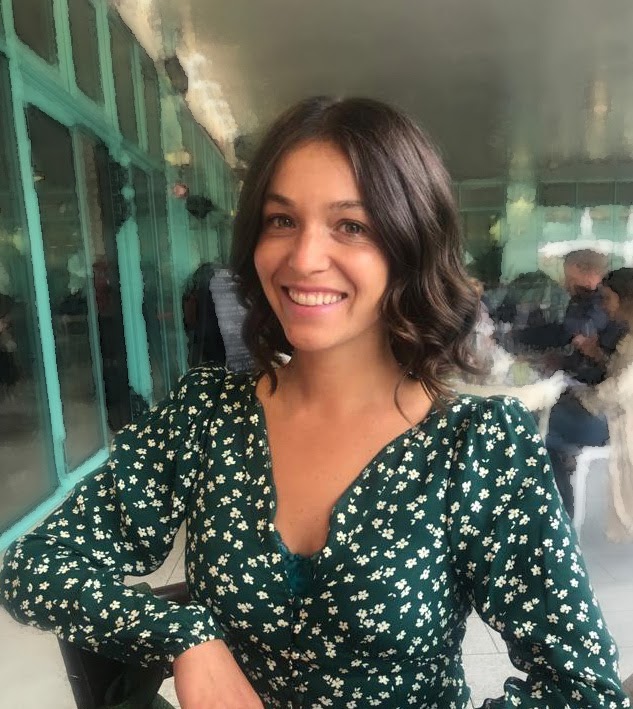 Freya is an artist and sustainability strategist based in Italy. She studied Art History at the American University of Rome (B.A., 2010) and Library and Information Science at Pratt Institute (M.S., 2015). She is also trained as a botanical artist.
Freya is an artist and sustainability strategist based in Italy. She studied Art History at the American University of Rome (B.A., 2010) and Library and Information Science at Pratt Institute (M.S., 2015). She is also trained as a botanical artist.
Freya helped create and served as COO of Common Earth, the regenerative development partner of the Commonwealth of Nations for four years through her work with Cloudburst Foundation. She was influential in organizing and facilitating several high-level convenings at the Commonwealth Secretariat in London between 2017 and 2019.
In addition, she has at institutions around the world including the United Nations, New York Public Library, Metropolitan Museum of Art, Civitella Ranieri Foundation, and A Growing Culture. Freya’s work has been featured in Vogue and she has authored articles in peer-review journals such as Weave, IK: Other Ways of Knowing, and IFLA.
Jane Ruka:
I need to clarify what I said about men destroying Papatuanuku. Following very fast on the heels of that comment, is that the present generation is awake and aware that their ancestors descendants of the colonists are very aware that they and us need to fix the problem of Papatuanuku.
So we need to be all together in this, not them or us. There is no them and us. There is just us, all of us, equalizing the control of everything, men and women together equally. Not one stronger than the other. And then we might have peace.
Freya Yost:
Does anyone else want to speak to that question? I think it’s a really deep invitation. How can we reconnect with our gods if we can’t remember our ancestry?
Naomi Mwangi:
Honestly, for me I think it’s by knowing who we are, knowing what I’m worth, what my worth is, what I am made of, and what I believe in. If I don’t know who I am, then I don’t know who my people are. If I don’t know who I am, then I can’t even listen to what other people are saying. So going back to my roots of discovering who I am, and what I am meant to be on this Earth and what is the Earth calling me to do. Those are the things that I feel personally that I have grown into.
Alexandra Gavilano:
And I just would like to emphasize, as Naomi said, of letting go of what people tell us that we are. I think that’s one key thing that I had to learn, like letting go of the images that others want to impose on me.
And I personally, also, I had to be in nature. I was living off grid for two years. And I needed that to actually just allow myself to put away my head, which was so trained to be so dominant and take on all the Alexandra space in me and behaving like it would be all of me but it was just my head that was inflating itself. Put it somewhere else and just let the space to really feel and resonate. And I couldn’t even name it on one level but I just feel it’s present.
It’s not one specific thing or one specific idea. And this is again where I would invite you to trust in yourself to find all the answers there are within you. And all the things that you will need suddenly, your eyes, your awareness will be let exactly to that point that again, reminds your inner self, “Hey, yes, that’s what it’s all about.”
Amber Tamm:
And for me, when I think of Harriet Tubman utilizing nature spaces to get to freedom, I can’t imagine the hell she went through, and it breaks my heart that there isn’t documentation of what she was feeling, because her narrative would be super different if she wrote down what she was feeling.
So I think my direct answer to that question is, it’s in the every day subtleties, including prayer. Like I make sure that I at least get up and feel gratitude. And if I don’t, then I can’t get up yet. I make sure that I walk with intention, at least for some amount of time and activate prayer in that way. But overall, I think for me, it was a surrender to Mama Earth herself.
For me, it was, if I know that trees can communicate to each other through root networks, then I have to also know it is my duty to use my fingers in the earth. I can still talk to all my mothers, even the ones I’ve never seen, never met. And so that’s where my connection with Earth comes from. It just so happens to feed others. It just so happens to empower others. And specifically in America, seeing a black woman farmer is a revolutionary act.
Alexandra Gavilano:
I would also like to answer this question and just kind of give another kind of piece to all this truth. I can say I was very ignorant. I went through extreme violence until I was 15 and I ignored it. Like I forgot even seven years of my life. And it was another traumatizing event losing a kid in the fifth month, two days after I decided I will go back to Switzerland and I will study. So this was for me a huge challenge and I lost a kid and that was when my spiral down kind of was unleashed.
And I realized all of this pain and I can tell you it doesn’t have to be a big trauma like they can be very small traumas and very small experiences. Like I remembered a small experience of mobbing where kids painted me with coal to appear more similar to my dad, and they cut off my hair so it’s curlier and I look like my dad. Small things that I would have never allowed myself to say, “Yes, this was traumatizing at that moment.”
Something that’s bad for me, for you might not be bad, in your perspective. We never have the same understanding of what is bad or what is traumatic.
There is some reason also why you all are here, why we all are here in this together. And the big thing of what I had to learn is to feel much more what my heart actually feels, how my inner child actually feels to be able to open up for new things. So I cannot say it was daring to connect with my ancestors. But it was kind of the first little steps that I’m taking. And I keep on discovering also kind of where my focus should shift, what my true inner being wants to tell me and wants to create my focus on.
Freya Yost:
It’s really interesting thinking about this topic, earth regeneration, which of course is how we all connected and why we’re here. It’s because we’re all thinking about environmental degradation and climate change, homelessness and war and perpetual violence and racism – essentially the polycrisis that we find ourselves in. And it’s just so interesting to have a space such as this, where that’s the premise of our conversation, and yet, we’re talking about ancestry, we’re talking about trauma, we’re talking about our lived day to day experience, and not only how to survive within it, but to work with it, to use it as a mechanism for healing, because we believe in that. And that is the sacred, right? That’s what defending the sacred means. That’s a living system’s understanding of how we work, how we’re programmed, how the earth works.
Of course, I’ve been deeply inspired by indigenous knowledge systems and local knowledge systems, because of spending time with these groups. I’m learning from them. And it’s been such a privilege to be able to do that and be mentored by so many communities that have strong links to their ancestry. And that sort of blood memory is still alive and pumping through them. And one common thread that I keep noticing is this living systems’ perspective, the world is alive, everything is alive around us. So anyway, those are some of the things that are alive for me right now. I don’t know if anyone wants to speak to that.
Alexandra Gavilano:
I would like to react or just add and it even goes together with the question from Laura before. There is this feeling and there are different words for it, but I usually work with the name, Earth emotions, these emotions that we feel because we are this one species that connects us, we all feel them. They all at some point flow through us. And they have to do with the destruction and the different aspects that you just mentioned like the destruction of our habitat, but they flow through us and very often we’re not aware of them thus interpreted maybe as, “I’m depressed.”
Luea Ritter:
There is a power of knowing how to again and again overcome, regenerate, and call upon something that’s so much larger than what we could even find names for. For me, when I hear the word soil and then I see how we are constantly touching it, reviving the synapses that may have gotten rusty, or got blocked or cut, like we are reviving as we are touching soil, matter, and other human beings. For me, it has a lot to do with reviving the systems that got somewhere broken or are ot nourished anymore.
Throughout this whole conversation, I realized that I became more and more silent – as if words disappear. As if it’s harder and harder to give expression to that form of language. Because other parts of me want to speak but, of course, in this medium it’s a bit hard to convey. Yet, I know I feel you. And I know there is a connection – across literally the globe at this stage.
Freya Yost:
We’re nearing our closing time and I would love to just hear a few last words from each of you. Just anything that feels alive or you’d like to close with. Naomi, do you want to start?
Naomi Mwangi:
Absolutely. What is feeling alive in me right now is the invitation that I just had so clearly of a way of sitting in silence. And before this call, I was just thinking about how sitting in silence makes us hear the deeper voices that we are not aware of when we go out there and hear all these noises. There’s always that deeper voice that keeps calling you and asking you to pay attention. But we ignore it and that voice comes from the heart.
Amber Tamm:
I got a text from a good friend that said, “We as humans need regeneration too.” And I’ve also heard Jane say that today. So I’m taking that as a symbol and I would just offer to everyone; to take this opportunity to regenerate, hibernate. If we’re going to have regenerative conversation, we need to have regenerative rest and regenerative nourishment.
Alexandra Gavilano:
I’m just appreciating the space and knowing all of you are out there, all of those who have listened to us. And I’m just appreciating. Like I feel this silence and I’m happy to just feel like breathing and being thankful for being. Thank you.
Freya Yost:
Beautiful. Jane, would you be willing to close our circle out?
Jane Ruka:
I’ll be very honored to do that. And I leave you with my thoughts that I have huge hope. And if you are all an example of humanity, we are winners already in our battle for regeneration of everything. Hold fast to the fact that we together can make this happen worldwide.
Freya Yost:
Thank you, everyone. Thank you so much for being here today



